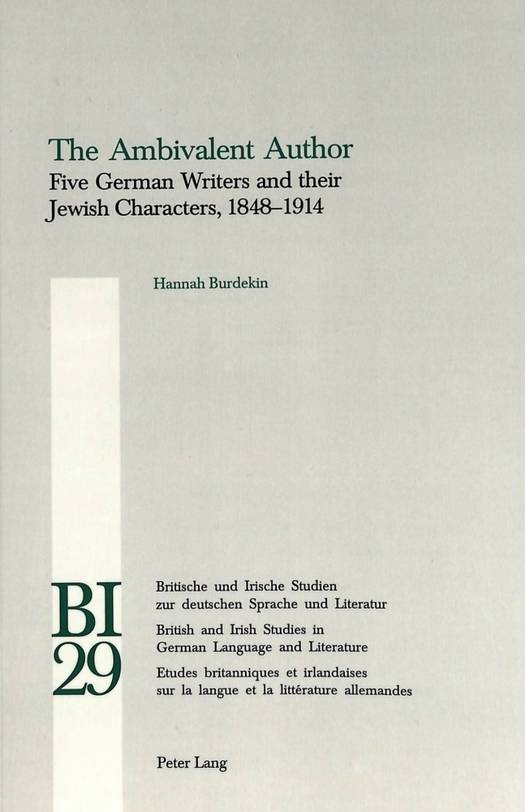
Door een staking bij bpost kan je online bestelling op dit moment iets langer onderweg zijn dan voorzien. Dringend iets nodig? Onze winkels ontvangen jou met open armen!
- Afhalen na 1 uur in een winkel met voorraad
- Gratis thuislevering in België vanaf € 30
- Ruim aanbod met 7 miljoen producten
Door een staking bij bpost kan je online bestelling op dit moment iets langer onderweg zijn dan voorzien. Dringend iets nodig? Onze winkels ontvangen jou met open armen!
- Afhalen na 1 uur in een winkel met voorraad
- Gratis thuislevering in België vanaf € 30
- Ruim aanbod met 7 miljoen producten
Zoeken
€ 99,45
+ 198 punten
Omschrijving
This study addresses the problems raised by the ambivalent comments about or portrayals of the Jews to be found in the writings of Gustav Freytag, Wilhelm Raabe, Leopold von Sacher-Masoch, Theodor Fontane and the early Thomas Mann. Why was it that these supposedly tolerant and liberal-minded men could use the language and images of antisemitism in their non-fiction and fiction? The book considers the question within the context of the unequal German-Jewish relationship in the period before, during and after Jewish emancipation. This study exposes the problematic way in which liberal-minded Germans thought about and treated the Jews in the later nineteenth and early twentieth centuries.
Specificaties
Betrokkenen
- Auteur(s):
- Uitgeverij:
Inhoud
- Aantal bladzijden:
- 342
- Taal:
- Engels
- Reeks:
- Reeksnummer:
- nr. 29
Eigenschappen
- Productcode (EAN):
- 9783906767055
- Verschijningsdatum:
- 20/12/2002
- Uitvoering:
- Paperback
- Formaat:
- Trade paperback (VS)
- Afmetingen:
- 150 mm x 220 mm
- Gewicht:
- 509 g

Alleen bij Standaard Boekhandel
+ 198 punten op je klantenkaart van Standaard Boekhandel
Beoordelingen
We publiceren alleen reviews die voldoen aan de voorwaarden voor reviews. Bekijk onze voorwaarden voor reviews.











